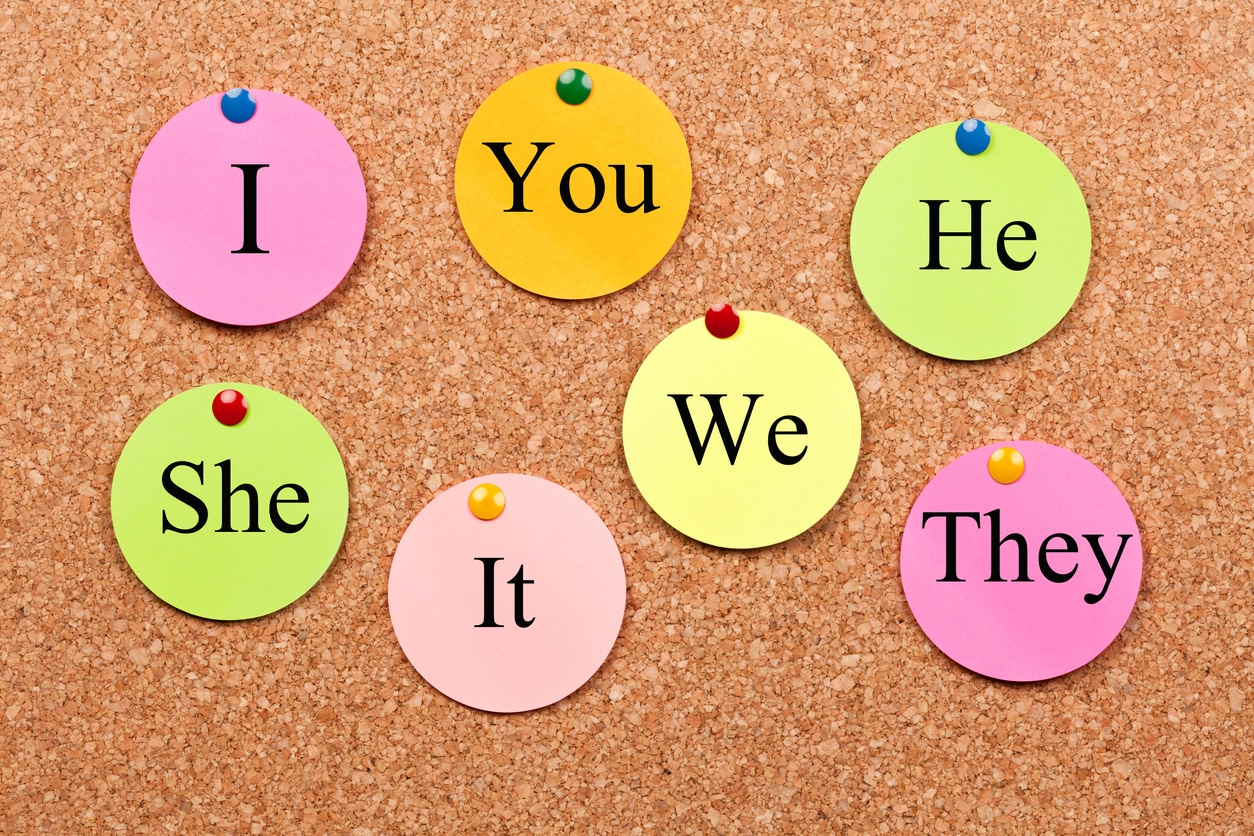Are Misgendered Pronouns Gender Discrimination at Work?
For transgender and nonbinary workers, a supervisor using the right name and pronoun can be a sign of affirmation and respect. But what if coworkers or supervisors refuse to refer to you in your preferred way? Are misgendered pronouns gender discrimination at work?
States Offer Gender-Netural IDs, No-Questions-Asked Gender Changes
Before 2017, every U.S. resident’s driver’s license or state ID said one or two things: M or F, Male or Female. Many states required complicated procedures, and even proof of surgery before transgender individuals would be allowed to change that M to F or F to M. But ideas of gender identity are changing quickly.
In July 2017, Oregon became the first state to issue gender X IDs. Washington DC followed soon after. Three years later, 14 jurisdictions have non-binary or gender-neutral options for their residents’ driver’s licenses or state IDs:
- Oregon
- Washington DC
- Arkansas
- Minnesota
- Maine
- Utah
- Colorado
- California
- Indiana
- Nevada
- Vermont
- Maryland
- New Hampshire
- Hawaii
In addition, several states have begun to allow residents to change the gender markers on their IDs simply by signing an affidavit, rather than providing invasive doctors notes and proof of medical procedures.
These movements are allowing transgender and non-binary individuals more freedom in adjusting their legal identity to match their personal gender identity. Trans* activists see this as a great step forward, and a signal that society is beginning to accept alternative genders.
Universities Use Stickers, Records to Let Students Identify Gender Pronouns
Following these changes to state laws, the first wave of non-gendered students are beginning to enroll in universities across the country. Respected institutions like Harvard often refer to students as Mr. or Ms. The addition of non-gendered students have put wrinkles into the system and revealed deeply held assumptions by many professors.
When Diego Garcia Blum started graduate school at Harvard last fall, he took his school-issued name placard and added his proper pronouns with a marker. He did that out of respect for another graduate student, Raven Graf, who is nonbinary and uses the pronouns they/them. Harvard’s John F. Kennedy School of Government, where Mr. Blum and Mx. Graf were enrolled has responded by providing clear stickers for the Winter 2020 semester with four pronoun options: He/Him, She/Her, They/Them, Ze/Hir.
Other universities have taken similar steps. New York University allows students to update class rosters with their preferred pronouns. The University of Minnesota enacted a pronoun policy allowing students to specify a name and gender that do not match their legal identities.
But these transitions have not always been smooth. Many pronoun protocols are voluntary “best practices” and some professors have chosen not to follow them.
Are Misgendered Pronouns Gender Discrimination at Work?
When this same behavior makes its way to the workplace, it can make everyday life difficult for transgender and nonbinary employees trying to express their true gender identity at work. When coworkers and supervisors ignore your requests and insist on using misgendered pronouns, it can quickly make you feel exposed and even unsafe.
Title VII and Misgendered Pronouns
Misgendered pronouns may be insulting, but it is not clear that on their own they would count as gender discrimination at work under Title VII of the federal civil rights act. Title VII does not explicitly protect against discrimination based on sexual orientation or gender identity. While many courts have said the protections apply, others have said they do not. The issue is currently pending before the U.S. Supreme Court. However, in that case the transgender worker was fired when she came out as a woman. It is not clear whether simply using the wrong pronouns could be so “severe” or “pervasive” that it creates a hostile work environment under federal law.
New York City Protects Transgender Workers
Even if misgendered pronouns are not gender discrimination under federal law, New York City’s Transgender Rights Law and New York State’s Human Rights Law may offer additional protections. The Transgender Rights Law explicitly requires employers to use the name, pronouns, and title a worker self-identifies, whether that matches their legal ID or not.
Gender-neutral IDs and nonbinary pronouns are going to be increasingly common among employees in New York City, statewide, and across the country. When employers are unable to keep up with the changes, it could result in gender identity discrimination and serious harm to nonbinary workers. At Eisenberg & Baum, we understand the impact misgendered pronouns can have on transgender and nonbinary employees. From our office in New York City, our employment discrimination attorneys help gender-nonconforming workers negotiate with employers and protect their rights. We are committed to making our office a safe space for you and your loved ones. If you feel like your employer is using your gender identity or expression against you, contact us. We’ll meet with you and help create a strategy that protects you against misgendered pronouns and gender identity discrimination.


